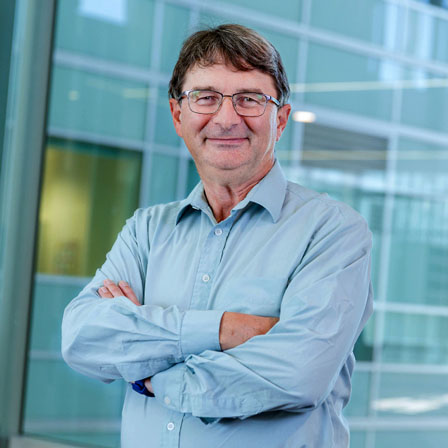Effective and economical healthcare systems should be business as usual.
 Professor Stephen Birch, Director of UQ’s Centre for the Business and Economics of Health (CBEH) is working to create a unique and dynamic environment in which a combined approach to healthcare systems can be explored.
Professor Stephen Birch, Director of UQ’s Centre for the Business and Economics of Health (CBEH) is working to create a unique and dynamic environment in which a combined approach to healthcare systems can be explored.
CBEH is a joint initiative of UQ’s Faculty of Health and Behavioural Sciences, the Faculty of Business, Economics and Law, and the Mater Research Institute. It provides customised economic analyses of complex problems faced by Australia’s leading healthcare authorities.
Originally hailing from Rochdale in the United Kingdom and later moving to Canada to undertake a professorial position at McMaster University in Hamilton where he remained for 30 years, Professor Birch is relatively new to Australian soil having arrived in Brisbane in February this year.
“Relocating to Queensland to join UQ and lead CBEH was a wonderful opportunity. My wife and I moved here early this year, leaving our two grown-up children behind in Canada. Of course, there’s less snow here but life in Australia wasn’t entirely new to me as I undertook a one year sabbatical in Sydney back in 1996.
My son completed his first year of school in Australia, and fondly remembers commuting to school by ferry.
“Part of my role at CBEH is to consolidate the work already being done in health economics at UQ and feed that into a cohesive product that will inform policy and make a lasting impact on Australia’s healthcare system,” he said.
Professor Birch believes there is no simple solution to something as complex as healthcare and that fostering unique collaboration between clinicians, economists and business experts is what is required to ensure that our healthcare system meets the demands of a changing population.
“Similar centres around the world tend to be based in medical facilities whereas we are taking a business-first approach while working alongside our partner, the Mater Research Institute.
“Awareness of health economics in Australia is growing and the community of experts in the field is thriving. The challenge is that we need to maintain what we’re doing well while improving in the areas where we aren’t doing so well.
A great example of this is the ageing population: people are living longer so the average 65-year-old today is healthier than an average 65-year-old 25 years ago, but healthcare providers don’t always recognise that.
“Our healthcare system is based on a world that’s standing still but we need to build beyond that model and adapt as the health of the population adapts.”
Professor Birch said that healthcare systems are driven by current supply rather than the needs of the population and that if supply continues to grow, the surplus finds something else to do, and so the problem continues to snowball.
“Between 1960 and 1970 we saw massive improvements in children’s oral health which was partly the result of more kids brushing their teeth and the addition of fluoride in toothpaste.
The need for dentistry services in the population fell but instead of adjusting the amount of dentists being trained, a surplus was created in the profession which meant that dentists needed more to do – cue new specialised areas such as orthodontics.”
Professor Birch explained the need to ensure that money and resources are used effectively to achieve the best outcome for the population of Queensland and Australia.
“In Australia, a lot of money goes into healthcare so here at CBEH we want to help make sure that money is being spent wisely and isn’t focussing on low-need problems while exhausting resources for high-need problems.
"While having a healthcare system that doesn’t discriminate or become out of reach for low socioeconomic groups, we also need a system that is sustainable, accessible, adaptable to change, and designed to meet the needs of its patients and populations.”
The Centre for the Business and Economics of Health was brought to life with the aid of the Taylor family donation. Fidelity Worldwide Investments’ Head of Australian Equities Paul Taylor and his wife Sue donated $1.25 million to allow UQ to begin conducting this important research. Both Paul and Sue are alumni of UQ; Sue a psychology graduate, and Paul a commerce graduate.
Words: Jo Hickman. This article was originally published by UQ Game Changers.



